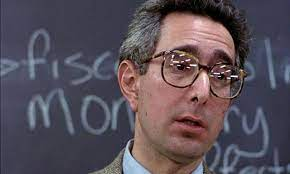Learning vs. Memorizing

Photo Source: Adobe
March 11, 2023
Ever felt unprepared for an exam? Ever come home from school and find what you learned that day has suddenly vanished from your mind? Well you are not alone, many students find that they have become uninterested in the curriculum being taught, and this can cause worse grades and less motivation. The long-time question in schools today is whether students are truly comprehending the material given, or just memorizing information for classes they really don’t understand.
To attain differing perspectives on this matter, teachers around the school were interviewed and gave interesting opinions from both sides.
When asked about memorization, John Siegfried, a history teacher said, “Sometimes memorization works when you’re assembling the information in your brain to hold for a while to do an activity, but there are times when I see activities that rely too much on memorization” Siegfried also said that there was a matter of teaching the students comprehension skills to “Be more efficient and move the whole team forward.” He adds that “memorization can never replace rich discussion.”
Memorization should be used for certain subjects, but some rely too much on it to the point where it is all some students know. The importance of comprehension is so the student can move forward to more challenging subjects and become a better learner.
Another big factor in a way a student perceives the curriculum is the relationship between them and the teacher. Matthew Jacques, a math and science teacher, believes very strongly that for learning to work there must be a relationship between the two. He said, “There’s always a certain foundational memorization you need to know, but learning is a two-way street, and here’s the thing, learning is hard, it is really, really hard. It takes the teacher and the student.”

“A lot of kids are not staying after school and taking the time to understand the curriculum,” said Kelly Chory, another math teacher who was also present during the interview. She brings up a new point.
While teachers want kids to understand the curriculum, students need to put in a certain level of effort to understand what is being taught.
Freshman Max Cloutier gave his perspective on the receiving end of education, saying, “I will be learning a topic one year, and then I move on to the next year, and all past teachings I will forget. Then I have to memorize it again.” He found that none of the information he was learning was being retained. Cloutier also said, “I don’t focus on learning what I’m taught, I focus on memorizing, so I can get good grades on my tests, I don’t have any interest in it.”
Could it be that students do not commit to their work, or do teachers need to reevaluate how they instruct?

To shed some light on the subject, Seniors Jason Sciacca and Aaron Marcus were interviewed to give an older and more experienced perspective.
“I feel like teachers try to go for getting the entire curriculum out as opposed to getting us to learn it, they have to follow it regardless if we understand,” said Marcus. He proposed that teachers are simply giving us the curriculum for the year rather than taking the time to explain it so they can send us off to the next grade.
Sciacca concurred with this and added, “It’s more of quantity over quality, and they teach it instead of getting us to learn it.”
Since we have already delved into math and history, Sciacca gave us a look into the teachings of science. “As someone who is taking AP Chemistry, it’s a lot of memorization, and we were given a lot of reference pages, and I think doing more stuff like that is really important.” He believes that memorization is important in some aspects of school, but thinks we need to have notes and reference sheets for tests, so we can put what we learn into practice. Many students agreed with this tactic and found that, especially in chemistry and other sciences, they were purely memorizing. In math, however, many interviewees said that is where most learning takes place.
Sophomores Lyla Pherson and Sean Mitchell commented on their time in chemistry, sharing the opinion that absorbing information is the key factor in studying science and there is no true recognition of curriculum. “We are learning to understand, not to retain, the information we have no conception of, and I find that, especially in chemistry that is all we do,” said Pherson.
The students interviewed were also asked if going after class is helpful, or if it is better to teach themselves. Everyone agreed they were teaching themselves curriculum, and most teachers just repeated what was taught in class.
Every student interviewed stressed that when staying after class for assistance, few teachers change their approach to help students understand.“When I stay after class, it depends on the teacher but most of them just revert to the way they originally taught it, so I stick to teaching myself,” said Sciacca.
Although several educators do this, high praise was given to a select few for taking the time to come up with a method ensuring the student understands.
The sophomores said this about Ms. Barlow: “I stayed after the other day, and she helped me take my time to figure out equations, and made sure I understood them in a way that made sense to me.”
About Ms. Cavalaro, an anonymous Freshman said this: “Whatever question you have she finds a different way for you to understand.”
Many anonymous students felt this way about Ms. Lentz, and said, “She always takes the time to make sure every student understands the curriculum in their own way.”
An anonymous student has Mr. Jacques and found his learning style helpful as well. They said, “Every time I stayed after, he broke down the lesson and explained it in a way that allowed me to catch up with my peers.”
To reflect, it can be seen that….
Learning is a two-way street, and both the students and the teacher have to put a level of effort into their work for students to really learn the material. Also, teachers may need to reevaluate the way they are teaching in order to engage students and ensure the curriculum is being taken in.
Allowing students to have notes or flashcards on specific tests could further improve the way they are learning. Finally, students find that classes rely too much on memorization and preparing kids to listen, rather than understanding and comprehension skills.
Maybe it is time for a change in teaching style; maybe it is time to change the way we learn.
